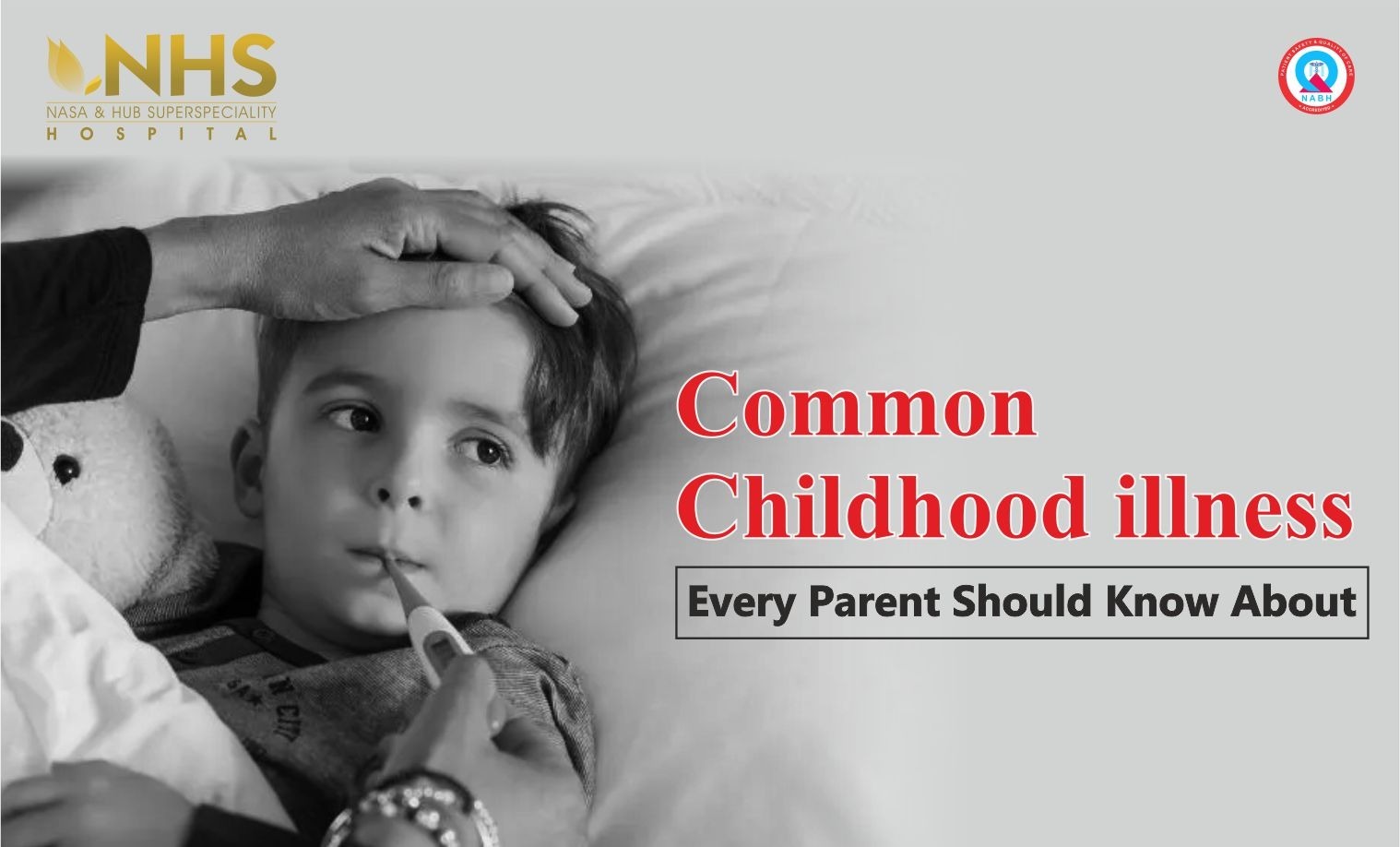
Parenting brings joy, excitement, and responsibility in equal measure. Among the many challenges parents face, one of the most worrying is when a child falls ill. While most childhood illnesses are common and treatable, they can still cause anxiety and discomfort for both children and their families. Having the right knowledge can help parents manage symptoms effectively and know when to seek professional care.
At NHS Hospital, families trust the expertise of Dr Puneet Bali (Senior Paediatrician and Neonatologist), who has 14+ years’ experience in caring for children of all ages. Supported by a compassionate team and special staff for new born babies, Dr Bali is known not only for his medical expertise but also for his genuine care about the wellbeing of kids.
Why Childhood Illnesses Are So Common
Children, particularly those in their early years, are more prone to illnesses than adults. This is mainly because their immune systems are still developing, making them less capable of fighting off infections. Exposure at schools, playgrounds, and other social settings also increases the chances of catching viruses or bacteria. While these conditions are usually mild, understanding them helps parents take quick and effective action.
1. The Common Cold
Perhaps the most frequent childhood illness, the common cold is caused by various viruses. Symptoms include a runny nose, sneezing, mild cough, sore throat, and sometimes a low-grade fever. While it usually resolves within a week, plenty of fluids, rest, and comfort measures are important. Parents should seek medical advice if a cold lingers beyond ten days or symptoms worsen.
2. Ear Infections
Ear infections are common in young children due to the structure of their eustachian tubes, which are shorter and more horizontal than in adults. Symptoms often include ear pain, irritability, difficulty sleeping, and sometimes fever. While some infections resolve on their own, persistent pain or repeated infections may require antibiotics or further medical intervention.
3. Gastroenteritis (Stomach Bug)
Often called the “stomach flu,” gastroenteritis is typically caused by viral infections. It leads to diarrhoea, vomiting, stomach cramps, and dehydration. The biggest concern for young children is fluid loss. Parents should ensure their child stays hydrated and seek urgent medical care if symptoms are severe or prolonged.
4. Hand, Foot, and Mouth Disease
This contagious viral illness commonly affects young children. Symptoms include small sores in the mouth, a rash on the hands and feet, fever, and irritability. While the illness usually clears up within a week, it can make eating and drinking uncomfortable, so soft foods and hydration are important.
5. Chickenpox
Chickenpox is a well-known viral infection characterised by an itchy rash of red spots that eventually form blisters. Other symptoms may include fever, fatigue, and irritability. Most cases are mild, but chickenpox can be more serious in infants and immunocompromised children. Vaccination now plays an important role in preventing this illness.
6. Asthma and Respiratory Issues
Asthma is one of the most common long-term conditions in children, causing breathing difficulties, wheezing, and coughing. Triggers include allergens, infections, and even changes in weather. With the right medical management, children with asthma can lead active, healthy lives.
7. Tonsillitis and Throat Infections
Sore throats in children are often caused by viral infections, though some may be bacterial such as strep throat. Symptoms include pain when swallowing, fever, and swollen glands. Viral throat infections typically resolve on their own, but bacterial cases may require antibiotics.
8. Neonatal Jaundice
Particularly relevant in newborns, jaundice occurs when a baby’s skin and eyes turn yellow due to high bilirubin levels. While common and often temporary, in some cases it requires monitoring and treatment. At NHS Hospital, the presence of special staff for new born babies ensures that conditions like jaundice are identified and managed promptly.
Supporting Parents Through Expertise
While most childhood illnesses are part of growing up, knowing when to seek professional help is crucial. Parents should consult a paediatrician if:
- A fever is persistent or very high.
- A child is unusually drowsy, irritable, or unresponsive.
- Symptoms are severe or not improving with home care.
- Signs of dehydration appear (dry mouth, fewer wet nappies, sunken eyes).
This is where the experience of Dr Puneet Bali becomes invaluable. With 14+ years’ experience, he combines medical knowledge with a caring approach, reassuring parents while delivering accurate and effective treatments.
Why Choose NHS Hospital for Paediatric and Neonatal Care?
- Expert Leadership: Dr Puneet Bali (Senior Paediatrician and Neonatologist) leads the department with a reputation for excellence and deep compassion.
- Newborn-Focused Team: With special staff for new born babies, parents can feel confident that even the most delicate conditions are managed with precision.
- Holistic Care: Beyond treating illnesses, Dr Bali and his team focus on preventive health, vaccinations, growth monitoring, and parental guidance.
- Trust and Compassion: Known for his genuine care about children, Dr Bali ensures families always feel supported and informed.
Final Thoughts
Childhood illnesses may be common, but with the right knowledge and professional guidance, parents can manage them effectively. From colds and infections to more complex conditions, early recognition and timely medical advice make all the difference.
At NHS Hospital, guided by the expertise of Dr Puneet Bali, families are assured of world-class paediatric and neonatal care. With 14+ years’ experience, a highly trained team, and special staff for new born babies, our commitment is clear: to ensure every child receives the best possible start to a healthy life.














